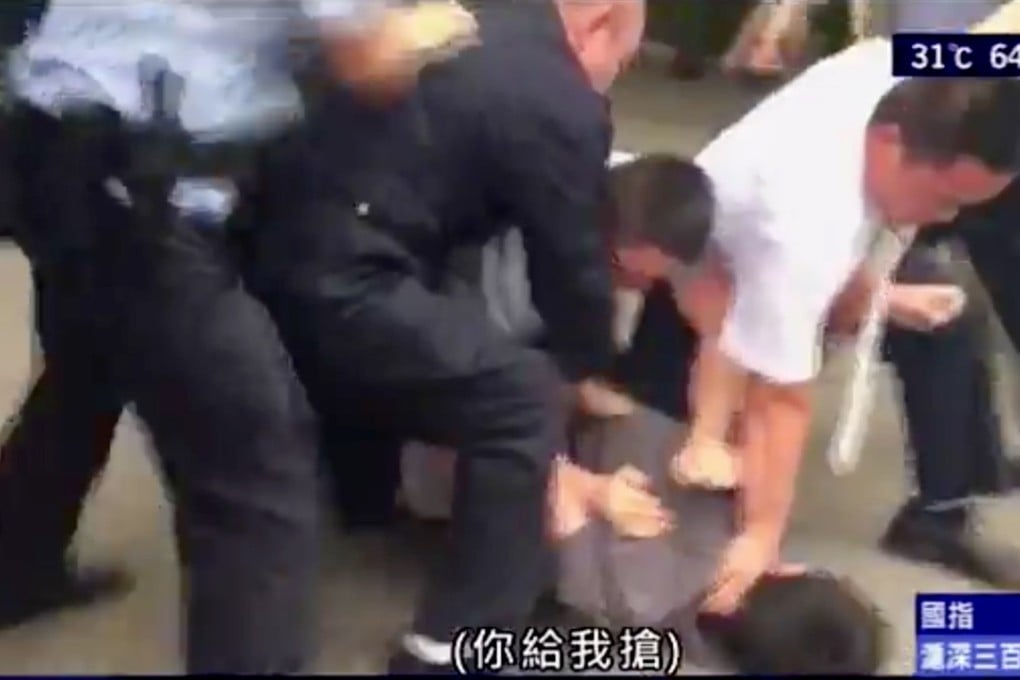Beijing police release Hong Kong journalist after he was detained covering hearing of human rights lawyer Xie Yanyi
Now TV slams ‘unreasonable and violent obstruction’ of cameraman Chui Chun-ming in incident that comes four days after another Hong Kong journalist was beaten in Sichuan

A Hong Kong video journalist was released from custody after he was bloodied, handcuffed and dragged into a van by police in Beijing while trying to cover a hearing involving a human rights lawyer on Wednesday.
Chui Chun-ming, a cameraman for Now TV, was released at 1pm after being hauled away at about 9am. The State Council’s Hong Kong and Macau Affairs Office had “mediated” at the request of the Hong Kong government.
Speaking to Hong Kong media after his release, Chui said he was made to sign a “statement of repentance”.
“[An officer] insisted I was wrong and told me to admit it. He said if I don’t, I will lose my press pass,” Chui said.
The statement claimed Chui had tried to “grab” his press pass from an officer. Chui admitted he was emotional but denied any physical contact with Beijing police.
Although he initially refused to sign the statement, Chui said he “had no choice” but to sign it, as he was not allowed to make contact with his company at the time.
He said he was allowed to use his phone in the police station, but was barred from making contact with other people while he was taken to a hospital.